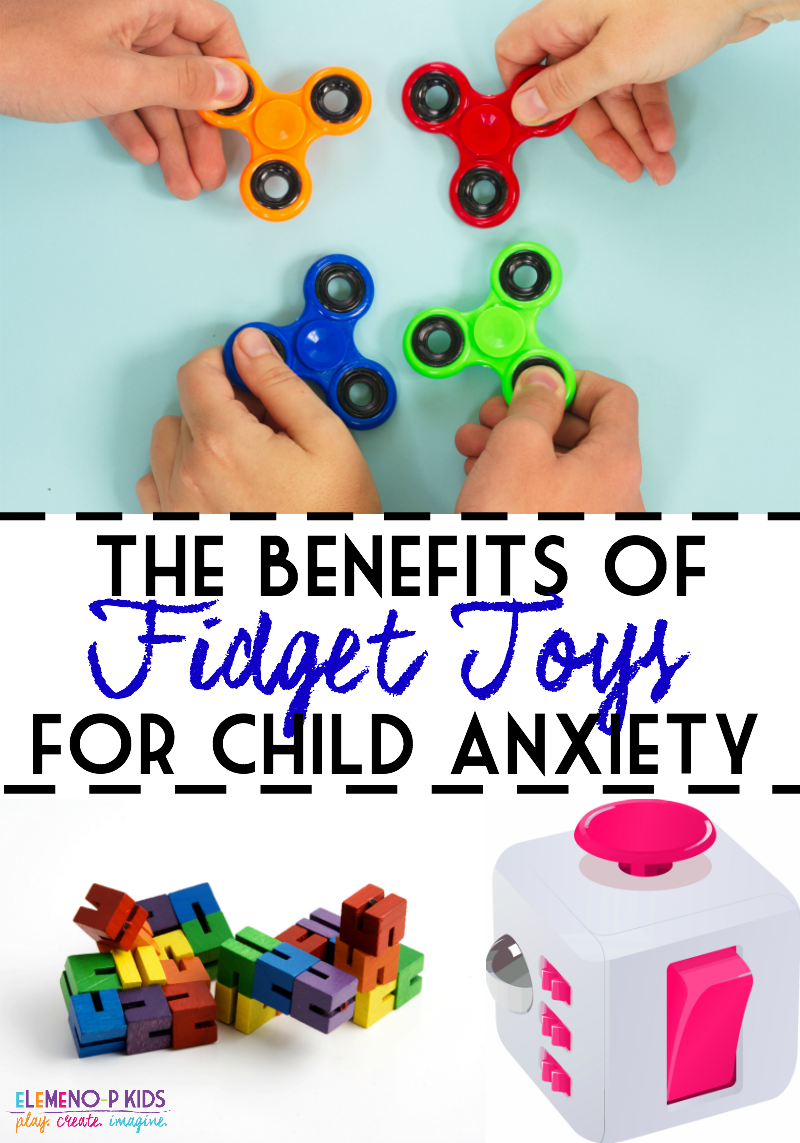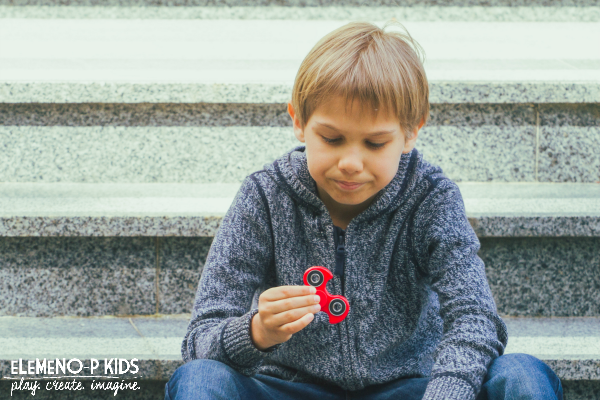Chewing the back of pens, playing with your ring, twirling hair or cracking knuckles – all are known as fidgeting. Today we will explore the benefits of fidget toys and how they can help your child’s anxiety.
Fidgeting is a nervous habit which children with anxiety or other disorders such as ADHD and autism are well acquainted with. While these habits can be annoying at best, at worst they can cause serious harm to you. For instance, people who chew their nails or the skin around their fingernails often end up drawing blood. They can also catch an infection as germs from the skin can get transferred into the mouth and vice versa.
Anxious children can rarely stay focused on the task at hand, be it in school or home. The constant need to fidget, get up and move around can cause them to be less efficient and productive compared to their peers.
While research shows that taking a few breaks in between or moving around can help control anxiety, everyone has to eventually start working at some point. This is where fidget toys can help, as they give people something ‘mindless’ to do which also increases their focus and concentration.

The Benefits of Fidget Toys
What are Fidget Toys?
If you are new to the trend, you may be wondering “what are fidget toys exactly?”.
Fidget toys are self-regulation tools which can help increase attention and focus. They can also have a calming effect on children with anxiety and can boost active listening. Fidget toys come in a variety of sizes, shapes and textures and can be different tools such as fidget spinners, fidget cubes, tangles, stress balls, spinner rings, etc. These can be used to increase tactile input and promote movement which can be essential for students and professionals alike.
Fidget toys such as fidget spinners are propeller shaped discs with a central ball bearing which allows you to spin them on a table or your fingers. Fidget cubes are a small hand-held device with sensory tools on all sides such as buttons, gears, a rolling ball, joystick, etc.
How do Fidget Toys Help with Anxiety?
Children with anxiety have a constant need to be on the move which makes it hard for them to focus on a specific task – be it at home, in office or the classroom. Taking too many breaks, tapping your feet and other such habits are behavioral disruptions which can affect productivity and efficiency. Additionally, anxious children have short attention spans and are usually slow at learning new things as they are unable to concentrate for longer periods of time.

How Can Fidget Toys Help?
Here’s a list of ways fidget toys such as fidget spinners and fidget cubes can help control anxiety:
- Increased Focus and Concentration
According to research, when people with anxiety can control or direct their movements, they can also improve focus and concentration. Movement and sensory input can be essential for learning and carrying out tasks as it requires people to use both the right and left hemispheres of the brain.
Moreover, various case studies have confirmed that anxiety and learning can be controlled with fidget toys. For example, a study focusing on showing the impact of fidget toys concluded that students given stress balls had improved scholastic achievement, especially students with ADHD.
Similarly, another study found that fidget toys could help relieve pre-surgery anxiety in patients.
- Serve as Minor Distractions
Fidget toys serve as minor distractions which can boost focus and productivity by giving your child’s mind a break and making it easier to pay attention.
- Have a Calming Affect
While anxiety, stress and other disorders such as ADHD can affect the entire body, they most notably affect the hands and fingers. An anxiety attack can include tingling, restlessness, shaking and cramping. While fidget toys are not a cure for these problems, they can be used to calm your child, as fidgeting itself is a calming mechanism. Fidget spinners and cubes give children a way of keeping their hands busy.
A major concern of parents and teachers is that fidget toys can be a distraction from important lessons. However, it is important to note that symptoms of anxiety, stress or disorders such as ADHD can be equally, if not more disruptive and harmful for the child. Fidget toys can be a minor distraction from which children can draw major benefits, such as being soothed. This in turn can lead to increased concentration and focus, thereby boosting learning and productivity.
Overall, fidget toys can be very useful for combating the symptoms of anxiety, stress and other mental health disorders. The repetitive motion of spinning, clicking or rolling fidget toys can also boost concentration and productivity as they help in calming you down.
This author of this post is Mizzy Moore. Mizzy is a young writer who is passionate about literature and blog writing.
I thought the article was very helpful. Are there certain toys that are more beneficial than others.
this article was good I hope this helps other people who are asking the same question…(How Are Fidgets Helpful For Learning?)